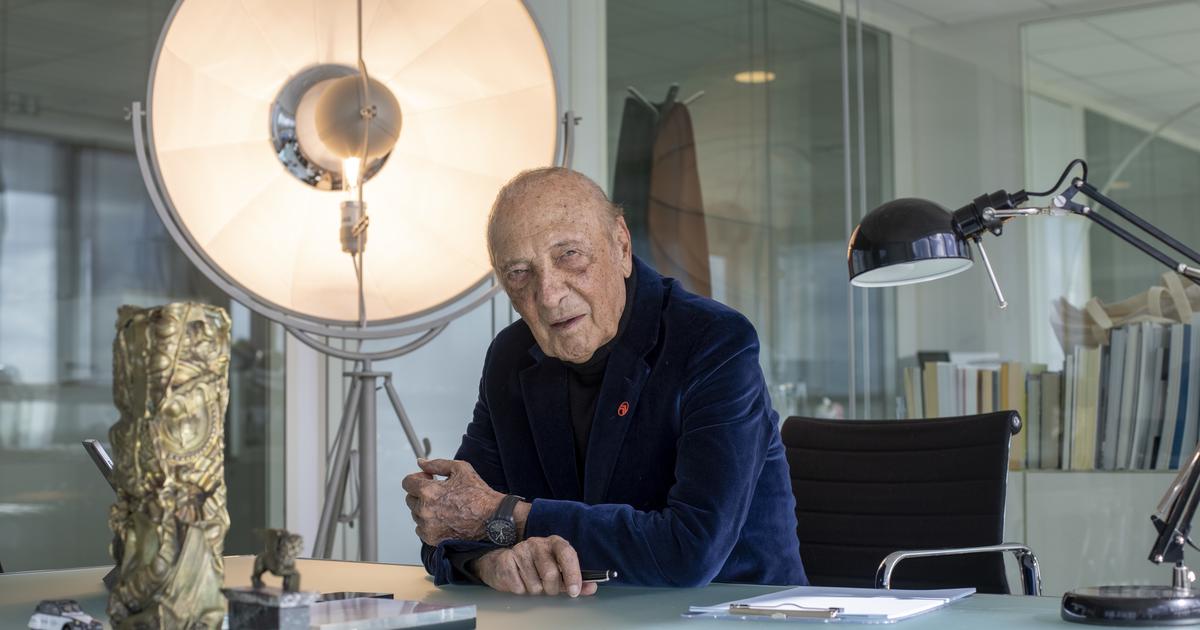The spectacular and the external never interested him.
Alfred Brendel, who celebrates his 90th birthday on January 5th, was a master of wise, profound sound speech.
Beethoven would also have been conceivable.
Or one of his typical Schubert interpretations that are as deep as they are life-wise.
But for Alfred Brendel Mozart to say goodbye to the stage.
And then not one of the late, representative piano concerts, but the startlingly precocious one with the nickname “Jenamy”.
This happened at the Wiener Musikverein in December 2008 when Brendel left the concert stage with KV 271.
Mind you, only from the concert stage, because he, who celebrates his 90th birthday this Tuesday, is still on the road as a living, (self-) ironic legend.
On the podiums, Brendel usually talks about composers and their interpretations, so to a large extent about himself.
Just like some time ago at the Würzburg University of Music.
The respective pieces played by Brendel himself played from the loudspeakers. Where some performers listened ecstatically or ostentatiously ashamed of their art, one could experience here an interested star who checked everything in his listening.
A smile, a short, involuntary co-conducting included.
Excursions into the spaces between the notes
All of this is in a sense the purely verbal continuation of Brendel's interpretations.
In the tradition of Wilhelm Kempff, Edwin Fischer and Alfred Cortot, he saw himself as a carefully weighing, reflective narrator.
Brendel's interpretations were also sonic speeches.
But not in the sense of the sometimes violent to provocative debates à la Nikolaus Harnoncourt.
Especially when Brendel played Schubert, they were delicate, worldly discourses in which the spaces between the notes became almost more important than the notes themselves. Brendel's interpretations emerged from the inside out.
The quick-tempered and the spectacular do not interest him, which is one of the reasons why he sees Rachmaninoff as "wasted time".
The holistic art of this century pianist is fed by his biography.
Brendel was born on January 5, 1931 in Wiesenberg, Czechoslovakia, moved with the family to the Croatian island of Krk, later moved to Graz, then to Vienna and has lived in London for many years.
He lives there with his second wife Irene;
three children resulted from this marriage.
He performed regularly with his son Adrian, a cellist.
At some point, playing the piano was no longer enough for Alfred Brendel.
He paints and draws.
Above all, however, numerous essays and books have appeared, including bizarre poems, in which Brendel's humor is reflected: these verses are the grotesque sisters of his musical interpretations.
His credo: “What does a work need?
What bothers?"
For Brendel, three all-important questions arise when interpreting it: “What does a work need?
What can a work take?
What bothers you? ”The fact that a lot can interfere very quickly resonates with this credo.
This is what you can just hear from Brendel's Schubert and Mozart play, especially his Beethoven interviews.
Brendel was the first to record his complete piano works.
Not only these interpretations are - in contrast to the contributions of many other pianists of the past century - still valid today.
Brendel, that's what makes him big, was never fashionable and remained curious.
He dealt with all trends in the development of interpretation.
Also with historical performance practice, which he met with loving rejection.
Brendel always remained a music-making spirit.
Like Dietrich Fischer-Dieskau in the area of lieder singing, it fitted into a society that in the 1950s and 1960s demanded content and was too happy to bask in this upper-class intellectuality.
Nevertheless, Brendel always picked up his audience on a first, on an emotional level, in order to then take them with him into the secrets of the works, into their depths and shallows.
Brendel let ultimate truths shine through without formulating them directly - thus keeping the secret of music.
Brendel once justified the fact that at the end of his pianistic career he had reached the hardest of all, Mozart: “Mozart is so demanding because every note, every nuance counts and everything is exposed in the utmost reduction.
You just can't hide anything. "













/cloudfront-eu-central-1.images.arcpublishing.com/prisa/Z45E6KV7VJGUXAKJWH7VA4NJSE.jpg)
